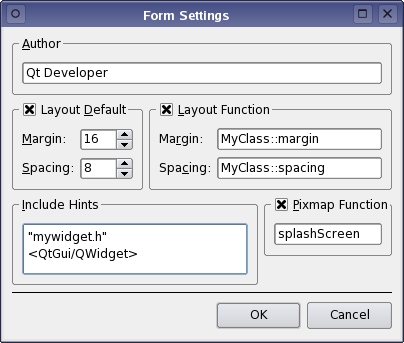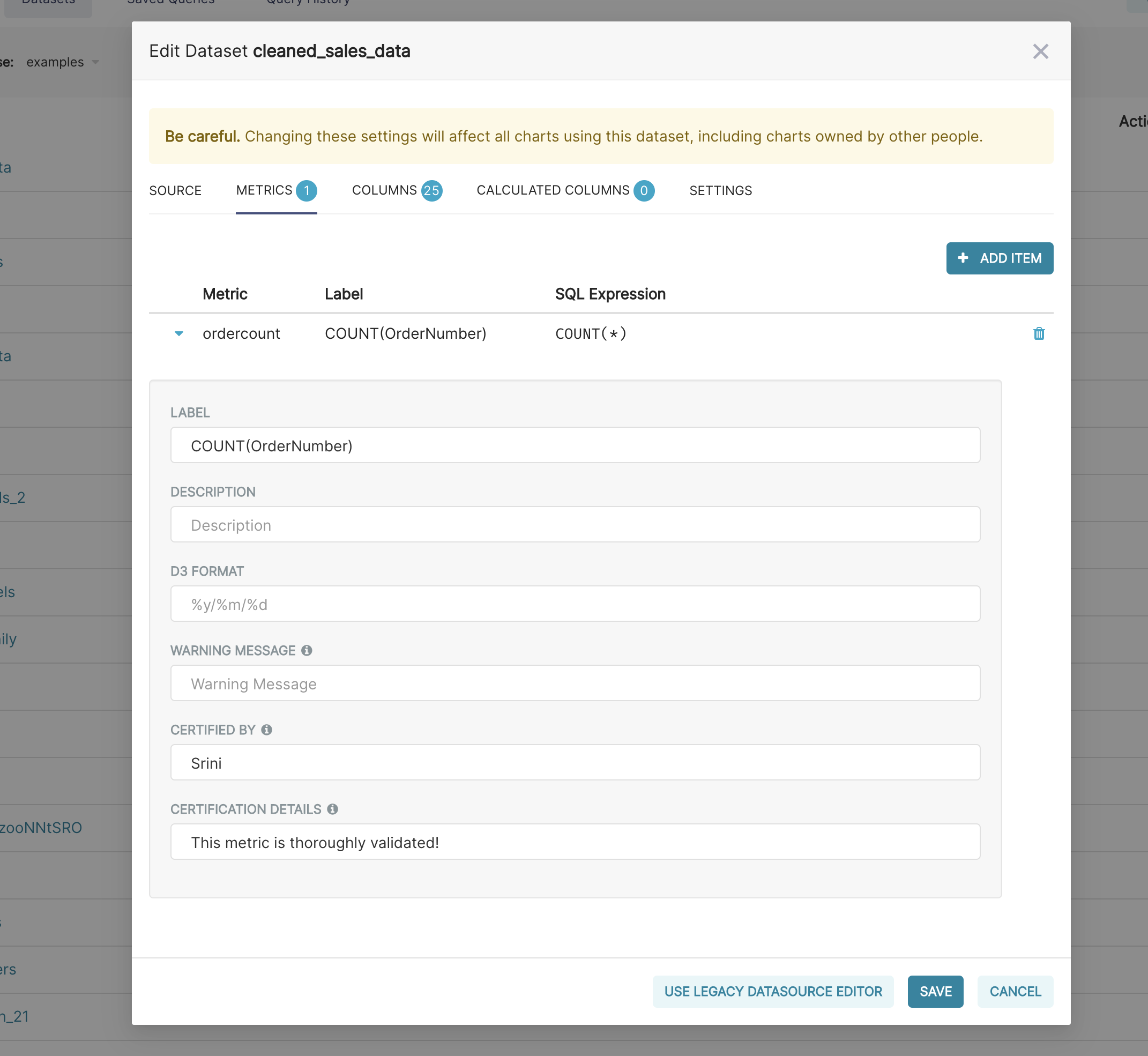|
Oysters Autobio posted:Thanks, yeah I think my ask is a bit too hyper specific so I'll widen my question just a bit better. If you are actually in New York, there's an NYC Python meetup that used to be very active in-person. They switched over to a Discord for pandemic times, but seem to be getting back into in-person events. I got my first real job by going to one of their meetups and just talking to a guy almost a decade ago. Could be worth looking into (they do a bunch of general stuff, not primarily a job-getting group).
|
|
|
|

|
| # ? Apr 23, 2024 14:34 |
|
Zoracle Zed posted:this poo poo sucks so bad and it's depressing how it's never going to get better Welcome to ChatGPT which is going to make it actively worse! The March Hare posted:If you are actually in New York, there's an NYC Python meetup that used to be very active in-person. They switched over to a Discord for pandemic times, but seem to be getting back into in-person events. I got my first real job by going to one of their meetups and just talking to a guy almost a decade ago. Could be worth looking into (they do a bunch of general stuff, not primarily a job-getting group). Oh hey I never thought about this; there's a branch in Puget Sound as well apparently. https://www.pspython.com/
|
|
|
|
Falcon2001 posted:Welcome to ChatGPT which is going to make it actively worse! I've already used it to fill in a bunch of copy on an ironic shitpost website project I'm working on. It's absolutely perfect for that useless text drivel (not to be confused with my posts)
|
|
|
|
Does anyone know any examples of well put together GUIs in Python? I'm mostly a Python hack, and I've got an older wx Python program, and it feels like the presenter (wx.App object) is doing too much work. Like I'll have a separate object that keeps a list of books, and then get_scifi_books() will be defined in the Presenter object. Maybe it doesn't matter because Presenter is the only one using the function, but it feels like I could add in more testing and stuff if get_scifi_books() was defined in a separate object that keeps the books. But then that leaves Presenter mostly empty. How far does that rabbit hole go? If I want to have 3 buttons for get sci-fi, get history, get educational books, should I just have the book object return a list of button names and the associated functions, and the Presenter just blindly puts the list of buttons together?
|
|
|
|
StumblyWumbly posted:Does anyone know any examples of well put together GUIs in Python? I'm mostly a Python hack, and I've got an older wx Python program, and it feels like the presenter (wx.App object) is doing too much work. Like I'll have a separate object that keeps a list of books, and then get_scifi_books() will be defined in the Presenter object. Maybe it doesn't matter because Presenter is the only one using the function, but it feels like I could add in more testing and stuff if get_scifi_books() was defined in a separate object that keeps the books. But then that leaves Presenter mostly empty. A lot of that comes down to the framework you're using; I started getting into SimplePYGui and it has a lot of examples, but I haven't used WX directly.
|
|
|
|
PySimpleGUI is legit. Itís basically ergonomic wrappers for the built-in Tkinter library. Not sure if it does everything you want, but it has a lot of demos and examples here: https://www.pysimplegui.org/en/latest/cookbook/
|
|
|
|
I'm guessing you're talking about GUIs without getting into any web dev right? Cause if you're willing to go the web app route, Flask is a pretty great way to use python with some basic bootstrap html and CSS (uses Jinja templates for parametizing html) Outside web dev, I've been curious to try out kivy for this since it claims to have a bit more modern looking UI
|
|
|
|
I've heard good things about Kivy but haven't tried it. PySmpleGUI sounds right up my alley for a lot of the basic, internal stuff I'm doing. This is all for running local programs so flask may not be the best. I'm a little worried that WxPython may fall seriously behind. It didn't move to python 3 until 3.5 or something, it sounds like not many folks use it, and it just looks like Windows NT. If I want to do fancy guis, is qt more the way to go or should I just not use python?
|
|
|
|
Qt is probably the best gui framework I've used, its power is pretty limitless and it's in such high demand that there are 2 competing python packages. The biggest advantage of Qt is probably Qt Designer, it's fully interactive and highly robust. It makes a lot of sense to design guis in a gui. Whenever you're happy with the result you can save off a ui file that you load in your code
|
|
|
|
Yeah I've yet to see any Python based GUI not just look like a slightly more modern version of Visual Basic. Like all the examples in qt designer or tkinter all just scream Microsoft office modal box. I think unfortunately we've all been exposed to too many web based GUIs which have defined the aesthetic and UX expectations in the past decade of "everything-as-a-webapp". Though it's surprising because all that it takes is some thicker/heavier input boxes, minimal gradients/colors/container lines, some highlight responsiveness and heavy padding so that your GUI looks less like this and more like this:  Granted the latter is a React front end but still surprising you need these godawful webpack javascript monstrosity compilers to do anything in the front end but that's the web for you 🤷. The ppl who work on this as their day job all use javascript now so it's the most supported even if it's garbage. Only exception as far as python based that I've seen is a few front end libraries like plotly Dash and streamlit. Granted these are aimed at the data world so I dunno how useful they are for anything more complex than a demo app. If it's just as an internal tool another bit earlier option are Jupyter notebooks with ipywidgets and other ipython based widget libraries. ipyvuetify for example looks great. Google's collaboratory makes the best looking notebooks though they're all cloud based. If you still like working out of an IDE you can get VS Code extensions for them too. Oysters Autobio fucked around with this message at 08:45 on Mar 9, 2023 |
|
|
|
I hope it's cool if I ask for some homework help in here. The assignment I'm working on is to basically calculate costs using a for loop for the outer loop and a while loop for the inner loop. I've got to the point where the program functions but I've messed something up somewhere causing the total_degree_credits variable is losing credits somehow.code:
|
|
|
|
Oysters Autobio posted:Yeah I've yet to see any Python based GUI not just look like a slightly more modern version of Visual Basic. Like all the examples in qt designer or tkinter all just scream Microsoft office modal box. I think unfortunately we've all been exposed to too many web based GUIs which have defined the aesthetic and UX expectations in the past decade of "everything-as-a-webapp". Though it's surprising because all that it takes is some thicker/heavier input boxes, minimal gradients/colors/container lines, some highlight responsiveness and heavy padding so that your GUI looks less like this Qt defaults to using the local system theme, so by default it looks Windows-like on Windows, or Mac-like on Mac, etc. That's actually a big part of the curb appeal, you get a lot of professionalism by default because that's usually what a GUI developer wants. But it's not limited to system themes, you can drop in anything you want (there are tons of cool looking themes in *nix) and make entirely custom things too. Spyder uses Qt, I think it looks pretty good but it's pretty system-y. And then you've got Dropbox, which has a bit of a more modern look
|
|
|
|
Tyshalob posted:I hope it's cool if I ask for some homework help in here. The assignment I'm working on is to basically calculate costs using a for loop for the outer loop and a while loop for the inner loop. I've got to the point where the program functions but I've messed something up somewhere causing the total_degree_credits variable is losing credits somehow. The only way I can see that happening is if the user provides a negative number of credits. That's a real potential bug - you could check for that; if credit is less than 0 just set it to 0. Can credits really be a float? I feel like it should be an int. Python code:Python code:e: I think total_degree_credits should also be outside of the for loop, it feels like it's double-counting earlier credit inputs otherwise. Isn't it true that degree_cost should be equal to the sum of all of the term_costs? QuarkJets fucked around with this message at 10:36 on Mar 9, 2023 |
|
|
|
QuarkJets posted:Qt defaults to using the local system theme, so by default it looks Windows-like on Windows, or Mac-like on Mac, etc. That's actually a big part of the curb appeal, you get a lot of professionalism by default because that's usually what a GUI developer wants. But it's not limited to system themes, you can drop in anything you want (there are tons of cool looking themes in *nix) and make entirely custom things too. Ah okay that makes sense, though even Windows has moved away from the windows-like GUI and into something more minimalistic and modern. If I was a generalist developer (i.e. not exclusively frontend / GUI) then I could see the appeal since it just inherits the default look and therefore is functional without completely looking like a hacked together Excel VBA form. I imagine with Qt you could do custom theming?
|
|
|
|
I'm not entirely sure how to phrase this question so my google searching is really missing the mark. I'm wondering if there's some kind of generic Python framework that will allow me to write a declarative statement about how a thing should look, and then gives me some kind of skeleton I can plug in to tell the framework how to make the changes needed. My specific usage is creating group entries in a particular tool. What I'd like is to have some definition of how the groups/folders should look, and then I can tell this "framework" how to read what exists, how to remove something, how to add something, and then I can just say "make it look like this" and the framework will figure out what needs to be deleted and what needs to be added. Basically I'm looking for something like what Terraform or Ansible do (a declarative declaration of what the product should be, rather than an imperative declaration of how to make it) but either it doesn't exist, or I'm searching with the wrong words. "Declarative" isn't a helpful search term, because that has a specific meaning in programming that's different form what I'm looking for. Maybe there's no value in a framework that just helps decide went to create and when to delete, and anyone doing such a thing is better off just writing it all themselves. Or maybe the whole thing is a waste of time trying to make something extremely robust that only gets executed a few hundred times ever.
|
|
|
|
If what you're working with is loaded into a dict would something like deepdiff work?
|
|
|
|
QuarkJets posted:The only way I can see that happening is if the user provides a negative number of credits. That's a real potential bug - you could check for that; if credit is less than 0 just set it to 0. Unfortunately, yes, that has to be a float for the assignment. It's in the instructions that the credits must be stored as a float since later I have to add data validation for a range of 0 - 4.5. I'll take a peek when I get a second and give it a go with your suggestions. Thank you!
|
|
|
Tyshalob posted:I hope it's cool if I ask for some homework help in here. The assignment I'm working on is to basically calculate costs using a for loop for the outer loop and a while loop for the inner loop. I've got to the point where the program functions but I've messed something up somewhere causing the total_degree_credits variable is losing credits somehow. You're setting total_degree_credits to 0 every semester. "total_degree_credits = 0" is what's resetting that value.
|
|
|
|
|
The Fool posted:If what you're working with is loaded into a dict would something like deepdiff work? Hmm, that might work. Unfortunately I got sucked into a different hyper-focus with this project so it might be bit before I can come back to this particular problem kicking around in the back of my head.
|
|
|
|
FISHMANPET posted:I'm not entirely sure how to phrase this question so my google searching is really missing the mark. I'm wondering if there's some kind of generic Python framework that will allow me to write a declarative statement about how a thing should look, and then gives me some kind of skeleton I can plug in to tell the framework how to make the changes needed. My specific usage is creating group entries in a particular tool. What I'd like is to have some definition of how the groups/folders should look, and then I can tell this "framework" how to read what exists, how to remove something, how to add something, and then I can just say "make it look like this" and the framework will figure out what needs to be deleted and what needs to be added. I'm not 100% grokking what you're putting down, but does https://docs.pydantic.dev/ at all line up with the sort of thing you're looking at?
|
|
|
|
Pydantic is more about data validation, not really applicable to the question as I understand it. I'm unaware of any kind of generic declarative framework like that. The suggestion to use deepdiff is, in general, a good one -- I've used it in the past to root out differences in large dict structures and act upon those differences -- but the gap between "I want to declare how I want the world to look" and "now I have dictionaries that I can bounce against each other" is significant if you want to generalize things. If you can't bend one of the existing tools like Ansible to your needs, you're probably going to have to build something. If you're going to build something, think really hard about whether or not you truly need it to be so flexible, especially if it FISHMANPET posted:only gets executed a few hundred times ever.
|
|
|
|
For book recommendations, Fluent Python is a great point to look at. It really gets you into the nuts and bolts of the language, it was the point where I flipped around from learning Python based on using high level libraries (like pandas) and really understanding the data model from the ground up. It won't teach you a lot about design patterns though.
|
|
|
|
I'm quite familiar with Pydantic, since this is part of a project using FastAPI, which relies heavily on Pydantic. And that's not what I'm after here. As part of the application (so it can't really be some external tool) I'm managing groups and folders in this tool called Grouper (which is basically only in use at higher-ed institutions and the web API is terrible and there's nothing really in the ecosystem publicly outside the tool itself). For n departments, the application creates a structure in Grouper with about 15 groups spread out across a couple different folders. The groups needed have changed over time. So some departments have, for example, an access group to a service that no longer exists. When the tool creates a new department it doesn't create a group for that unused service, but the existing departments have those groups. And sometimes we might introduce a new service that needs a new group, and so we have to add that group to all the existing departments. So I might define an ideal layout that's something like code:code:
|
|
|
|
dehumanize yourself and write a terraform provider
|
|
|
|
It would be a very "me" thing to go in a couple of weeks from never touching terraform or go to learning go and writing a terraform provider.
|
|
|
|
crossposting here because i honestly don't know the best place to ask Redis questions:teen phone cutie posted:i previously posted ITT about wanting to implement Redis for some paginated SQL queries and one suggestion was to request all the data and just store it as one object and just bust the cache when an item is updated or added (items cannot be removed at this time)
|
|
|
|
How much Python 2 are y'all living with? What's a sane expectation for carrying along Python 2 applications that don't have any change planned but are expected to keep working forever? If we try and mandate Python 3 by decree but without getting everyone's hearts and minds onboard, there's going to be grumbling for all eternity. My own thoughts on it are that all code does end up being modified at some point, and the less often you encounter Python 2, the more likely you are to make mistakes in it. I'd like to port everything that runs in 2023 to Python 3, full stop. I'm just tired. Tired of having to remember 2/3 differences, tired of collaboration failures where the two parties are on different Python versions and don't voice this at the start of a conversation, tired of ancient packages.
|
|
|
|
Twerk from Home posted:How much Python 2 are y'all living with? What's a sane expectation for carrying along Python 2 applications that don't have any change planned but are expected to keep working forever? 0 at work and 0 in personal projects, has been this way for many years.
|
|
|
|
Don't rely on "if it ain't broke don't fix it". Someday some dependency will have a critical vulnerability crop up (or SSL will break or something) and the py2-only library in your requirements.txt will not be updatable and you'll suddenly be on the hook to rewrite the entire thing in an hour. Get out in front of everything before it happens.
|
|
|
|
|
It's absolutely worth upgrading to Python 3, if not only for many of the recent improvements to Python 3. Besides, haven't the creators of Python practically been begging people to stop using 2 for a while now?
|
|
|
|
Twerk from Home posted:How much Python 2 are y'all living with? What's a sane expectation for carrying along Python 2 applications that don't have any change planned but are expected to keep working forever? You are going to run into trouble hiring, and searching for answers will become harder and harder. You need to update. Interns should be able to do a big chunk of it, unless maybe you're doing something extra strange with low level objects or something.
|
|
|
|
Twerk from Home posted:How much Python 2 are y'all living with? What's a sane expectation for carrying along Python 2 applications that don't have any change planned but are expected to keep working forever? 0%. I forced this issue years ago and we never looked back Don't waste another second of time on maintaining python2 code, 2to3 is a mature tool and works great. Use it, fix any lingering issues, and then drop python2 support forever.
|
|
|
|
How reliable are modern Python-to-exe packages? I recently learned that a research tool Iíve been working on for my job might eventually need to be deployed to outside users, probably closed source. And due to IP reasons on their end, it canít be a web app hosted on AWS or whatever because their data/results canít be on a system outside of their company at any time.
|
|
|
|
Zugzwang posted:How reliable are modern Python-to-exe packages? I recently learned that a research tool Iíve been working on for my job might eventually need to be deployed to outside users, probably closed source. And due to IP reasons on their end, it canít be a web app hosted on AWS or whatever because their data/results canít be on a system outside of their company at any time. - Including non-Python files takes some effort, like if you need to load in some settings from a .json that you expect to be included in the EXE - Create the exe from a venv that only has what you need, otherwise it may be huge - It is fairly trivial to reverse "compile", the scripts are just zipped up with an Python executable, so don't expect to have any secrets there E: ^^^ I'm curious, do you work in academia? What place has people that complain about needing to use Python 3? StumblyWumbly fucked around with this message at 00:17 on Mar 17, 2023 |
|
|
|
StumblyWumbly posted:I've used pyInstaller, there are times when it is a massive pain but once you get it working it is fine. Things to be aware of: You should never ever expect users to have a python install. Thats asking for it-works-on-my-computer hell. PyInstaller has worked well for me.
|
|
|
|
Zugzwang posted:How reliable are modern Python-to-exe packages? I recently learned that a research tool I’ve been working on for my job might eventually need to be deployed to outside users, probably closed source. And due to IP reasons on their end, it can’t be a web app hosted on AWS or whatever because their data/results can’t be on a system outside of their company at any time. Is a container an acceptable answer? That may be even more secure and will definitely be easier to deploy and maintain
|
|
|
|
StumblyWumbly posted:I've used pyInstaller, there are times when it is a massive pain but once you get it working it is fine. One problem with it is that CPython isn't prepared to be statically linked to things. When you package something with pyinstaller, it still uses the system's libraries for lots of things and they need to be compatible. Like on Linux, it won't try to package anything from /usr/lib or /lib. The target system needs a compatible libc It works about as well as anything short of a container
|
|
|
|
iirc Singularity containers are basically designed for this kind of situation, where you don't trust either the system owner or other users on the system. And you can build one from a docker container so you can get the best of both worlds
|
|
|
|
QuarkJets posted:iirc Singularity containers are basically designed for this kind of situation, where you don't trust either the system owner or other users on the system. And you can build one from a docker container so you can get the best of both worlds Never heard of this until now. That is fuckin' dope.
|
|
|
|

|
| # ? Apr 23, 2024 14:34 |
|
StumblyWumbly posted:I've used pyInstaller, there are times when it is a massive pain but once you get it working it is fine. Things to be aware of: CarForumPoster posted:You should never ever expect users to have a python install. Thats asking for it-works-on-my-computer hell. PyInstaller has worked well for me. QuarkJets posted:iirc Singularity containers are basically designed for this kind of situation, where you don't trust either the system owner or other users on the system. And you can build one from a docker container so you can get the best of both worlds
|
|
|






























